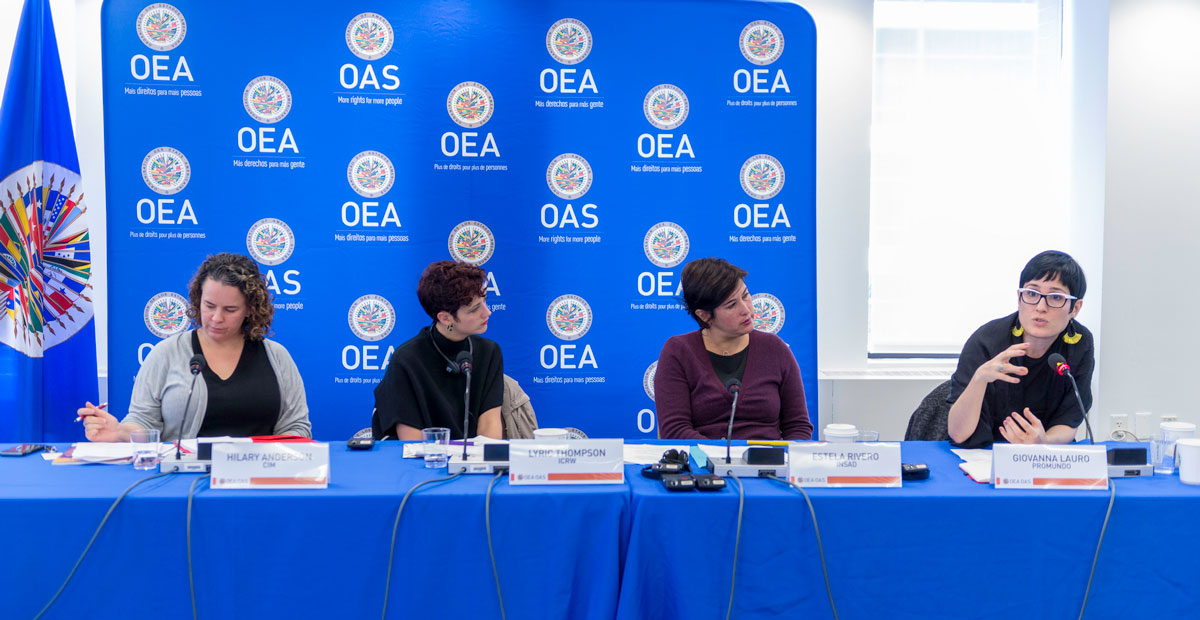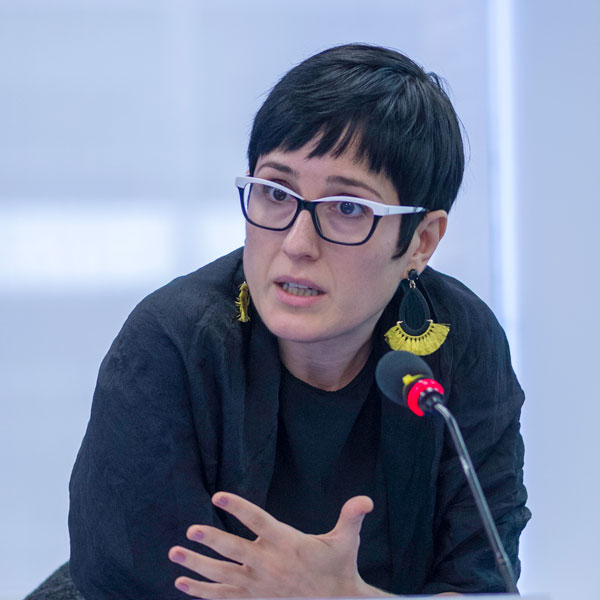
Child marriage and early unions are far more prevalent in Latin America than is generally understood: almost 30% of girls in Latin America and the Caribbean are married before the age of 18, and Latin America is the only region in the world where child and adolescent pregnancy is increasing.
On January 23, Giovanna Lauro, Vice President of Programs and Research at Equimundo, joined a panel of experts at the Organization of American States (OAS) to discuss the latest evidence on child marriage and early unions in the region. Co-organized by the Ford Foundation and the Inter-American Commission of Women (CIM)/OAS, this regional exchange aimed not only to review the growing body of research on the topic, but also to identify information and data gaps, and provide evidence-based policy and programmatic recommendations.
In contrast to other parts of the world, early unions in Latin America are often informal, characterized by cohabitation, but not legally registered – which in turn makes the practice of child marriage harder to detect and address, said Hilary Anderson, Senior Gender Specialist at CIM. “Legal reforms rarely take informal unions into account, so these young girls lack even basic legal protections,” she added.
Until recently, the invisibility of the practice in the region was accompanied by its absence in global discussions and actions around child marriage. The absence of Brazil is particularly noteworthy, given that the country ranks fourth globally in terms of absolute number of women aged 20 to 24 who were married by the age of 18.
To address this gap, Equimundo conducted the first study ever on child and adolescent marriage in Brazil with support from the Ford Foundation. Exploring attitudes and practices in Pará and Maranhão, the two Brazilian states with the highest prevalence of the practice, the study highlights the ways that initiatives to prevent child and adolescent marriage can engage men and boys. The study also presents research, policy, and program recommendations to improve prevention of, and response to, the practice in the country, including strengthening accessible, comprehensive sexuality education for girls and boys.
Indeed, whether in an early union or simply in a dating relationship, “most adolescents receive almost no support in learning to recognize and communicate their own desires,” Giovanna Lauro said. “We need programs to promote healthy relationships, mediation skills, and assertiveness long before physical and sexual violence starts, and we need to support those who have experienced or are currently experiencing violence.”
A new study by Equimundo and the Inter-American Development Bank, Adolescent Relationship Violence in Brazil and Honduras, underscores that adolescents generally recognized physical violence as such, but rarely identified or problematized controlling behaviors that were not only pervasive throughout the research, but also considered “normal.”
In a context where controlling behaviors may be interpreted by adolescents as a sign of “caring,” due to the high levels of urban violence that they witness and experience, and where child marriage may often be perceived by girls or their family members as offering stability in settings of economic insecurity and limited educational opportunities, it is essential to address early unions on many fronts at once.
To this aim, the panel called not only for comprehensive sexuality education starting from very early adolescence, but also for meaningful employment opportunities to provide girls with valid alternatives to marriage and to combat the widespread male youth unemployment (which plays an important role in influencing girls’ preference for older men, perceived as better providers).
The experts urged governments in the region to raise the minimum legal age for marriage and eliminate exceptions and loopholes in existing legislation. They urged decision-makers to focus on the ways that adequate policies – combined with contextualized initiatives changing harmful gender norms and providing viable alternatives to marriage such as schooling – can protect girls’ right to freely and fully decide if, when, and whom they marry.
In order to challenge the gender norms that uphold child marriage, the experts noted, an increased awareness of the relational aspects of gender suggests that a comprehensive, evidence-based response to child marriage should engage not only women but also the brothers, fathers, uncles, and future husbands and fathers-in-law of the girls at risk of child marriage.
Watch the recorded event here:

